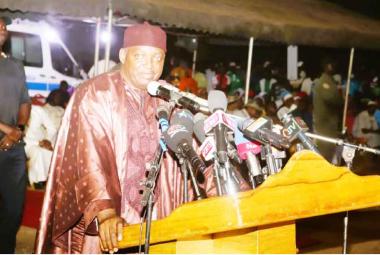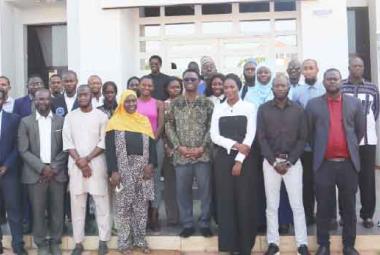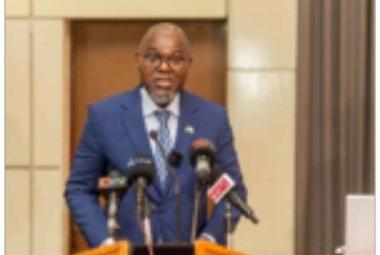By Adam Nyang
Activism and awareness raising on the effects of climate change has been an ongoing phenomenon for the past several years. One of the most prominent young people spearheading the global fight is a Gambian called Fatou Jeng.
Fatou Jeng has a decade of experience in the climate justice advocacy, earning her a global recognition. She was officially appointed by the UN Sectary General as a climate change youth advisor in March 2022 and sits in the Sectary General’s early warning systems advisory panel. She was involved in individual climate activism before growing interests in global climate discourse.
Ms Jeng founded Clean Earth Gambia, one of the biggest youth-led environmental organisations. The organisation works on the intersection of climate change and gender, and advocacy awareness. Over the years, they’ve been able to mobilise and work with over three thousand young people and children in the protection of our environment through capacity building, community outreach for awareness creation, as well as tree planting activities.
According to Fatou, as an organisation, they’ve planted over thirty thousand trees. In 2020, they had a partnership that gave them the capacity to plant over twelve thousand coconut trees at the Banjul beach due to the city’s vulnerability to the rising sea level. They also initiated the first ever She Climate Fellowship, a seven-month intensive capacity building training for twenty-five selected young women to build their knowledge on the intersection of gender and climate change, as well as build leadership for them to take part in climate initiatives.
In partnership with UNICEF Gambia, this year, they embarked on a nationwide Teach Me Climate. It was a programme that was able to train three hundred youths across the seven regions of the country on the issues of climate change and activism.
Clean Earth Gambia also launched the first-ever Green Solutions Pitching, which was all about helping youths with funding for climate change projects. There was a winner and two runners-up who were awarded cash for their solutions in order to implement their brilliant projects. They also implemented a project where they used arts, the creativity of story-telling and design to disseminate climate messaging. They were able to engage thirty elementary schools in The Gambia, work with creative designers and musicians to influence behavioral change. The project was called Art4Earth.
In July this year, they hosted the first-ever National Children and Youth Conference on Climate Change attended by about hundred and fifty participants from across the country. The key outcome was a national children and youth engagement strategy which will guide how governments and development partners engage with youth on climate programmes and activities.
Lastly, Fatou Jeng reported that over the years, as an organisation, they’ve been able to work with women farmers, building their capacity and advocating their land rights in the climate space. They’ve also worked with other civil society organizations to discuss shared and best practices.






